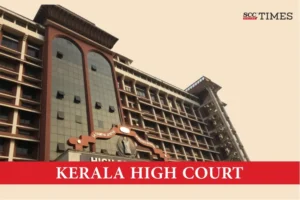Kerala High Court: In a writ appeal filed against the impugned judgment of the Single Judge wherein the appellant’s writ petition was summarily dismissed as not maintainable, the Division Bench of Nitin Jamdar*, CJ and S. Manu, J. setting aside the impugned decision and restoring the petition, held that the mere availability of alternative remedy cannot be a ground for dismissal of a writ petition as non-maintainable. The Court highlighted the difference between maintainability and entertainability of a writ petition and restored the appellant’s petition by quashing the impugned judgment.
Background
The appellant, in her writ petition, had challenged a notice issued under Section 7 of the Kerala Revenue Recovery Act, 1968 by Deputy Tahsildar (Revenue Recovery), wherein the Village Officer was authorised to seize movable property of the appellant for the defaulted amount of Rs. 1,10,096 with interest due to the Kerala State Electricity Board (‘KSEB’). She also challenged the correctness of the methodology of recovering the amount due to KSEB as arrears of tax. She contended that she had not entered into any contract with the KSEB and it was only a firm running Cable TV Network as a franchisee under a contract with respondent 5, Asianet Satellite Communications Pvt. Ltd. The Single Judge dismissed the writ petition as not maintainable and allowed the petitioner to take recourse to any other remedy under the law.
Analysis
The Court stated that even if an alternate remedy is available to the petitioner, that cannot be ground to hold the writ petition under Article 226 of the Constitution of India against an administrative authority as “not maintainable”.
The Court said that the powers under Article 226 of the Constitution of India can be exercised in restricted circumstances and within well-defined parameters, even if there exists an alternate remedy. The Court stated that as a matter of settled judicial practice, the jurisdiction under Article 226 is not exercised if there is an alternative efficacious remedy available and, in such circumstances, the writ court may decline to “entertain” the writ petition. Thus, the Court held that there is a difference between maintainability and entertainability of a writ petition.
The Court referred to the case of Godrej Sara Lee Ltd. v. E&TOCAA, (2023) 109 GSTR 402 wherein it was observed that the mere availability of an alternative remedy of appeal or revision, which the party invoking the jurisdiction of the High Court under Article 226 has not pursued, would not oust the jurisdiction of the High Court and render a writ petition “not maintainable”. Hence, dismissal of a writ petition by a High Court on the ground that the petitioner has not availed the alternative remedy without, however, examining whether an exceptional case has been made out for such entertainment would not be proper.
Noting the aforesaid dicta, the Court held that the petition filed by the appellant was maintainable, however, whether it should be entertained is another question altogether. Holding this, the Court set aside the impugned judgment and restored the writ petition.
[Manohari R v. Deputy Tahsildar (Revenue Recovery), Writ Appeal No. 1143 of 2024, decided on 05-12-2024]
*Authored by: Chief Justice Nitin Jamdar
Advocates who appeared in this case:
For the appellant: Binoy Vasudevan, K.V. Rajeswari, Rincy Khader, Sreejith Sreenath
For the respondent: Saji Varghese T.G., Mariam Mathai, B. Pramod, Standing Counsel, and V. Tekchand, Senior Government Pleader

